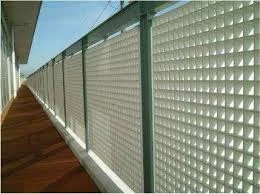
-
 Afrikaans
Afrikaans -
 Albanian
Albanian -
 Amharic
Amharic -
 Arabic
Arabic -
 Armenian
Armenian -
 Azerbaijani
Azerbaijani -
 Basque
Basque -
 Belarusian
Belarusian -
 Bengali
Bengali -
 Bosnian
Bosnian -
 Bulgarian
Bulgarian -
 Catalan
Catalan -
 Cebuano
Cebuano -
 China
China -
 China (Taiwan)
China (Taiwan) -
 Corsican
Corsican -
 Croatian
Croatian -
 Czech
Czech -
 Danish
Danish -
 Dutch
Dutch -
 English
English -
 Esperanto
Esperanto -
 Estonian
Estonian -
 Finnish
Finnish -
 French
French -
 Frisian
Frisian -
 Galician
Galician -
 Georgian
Georgian -
 German
German -
 Greek
Greek -
 Gujarati
Gujarati -
 Haitian Creole
Haitian Creole -
 hausa
hausa -
 hawaiian
hawaiian -
 Hebrew
Hebrew -
 Hindi
Hindi -
 Miao
Miao -
 Hungarian
Hungarian -
 Icelandic
Icelandic -
 igbo
igbo -
 Indonesian
Indonesian -
 irish
irish -
 Italian
Italian -
 Japanese
Japanese -
 Javanese
Javanese -
 Kannada
Kannada -
 kazakh
kazakh -
 Khmer
Khmer -
 Rwandese
Rwandese -
 Korean
Korean -
 Kurdish
Kurdish -
 Kyrgyz
Kyrgyz -
 Lao
Lao -
 Latin
Latin -
 Latvian
Latvian -
 Lithuanian
Lithuanian -
 Luxembourgish
Luxembourgish -
 Macedonian
Macedonian -
 Malgashi
Malgashi -
 Malay
Malay -
 Malayalam
Malayalam -
 Maltese
Maltese -
 Maori
Maori -
 Marathi
Marathi -
 Mongolian
Mongolian -
 Myanmar
Myanmar -
 Nepali
Nepali -
 Norwegian
Norwegian -
 Norwegian
Norwegian -
 Occitan
Occitan -
 Pashto
Pashto -
 Persian
Persian -
 Polish
Polish -
 Portuguese
Portuguese -
 Punjabi
Punjabi -
 Romanian
Romanian -
 Russian
Russian -
 Samoan
Samoan -
 Scottish Gaelic
Scottish Gaelic -
 Serbian
Serbian -
 Sesotho
Sesotho -
 Shona
Shona -
 Sindhi
Sindhi -
 Sinhala
Sinhala -
 Slovak
Slovak -
 Slovenian
Slovenian -
 Somali
Somali -
 Spanish
Spanish -
 Sundanese
Sundanese -
 Swahili
Swahili -
 Swedish
Swedish -
 Tagalog
Tagalog -
 Tajik
Tajik -
 Tamil
Tamil -
 Tatar
Tatar -
 Telugu
Telugu -
 Thai
Thai -
 Turkish
Turkish -
 Turkmen
Turkmen -
 Ukrainian
Ukrainian -
 Urdu
Urdu -
 Uighur
Uighur -
 Uzbek
Uzbek -
 Vietnamese
Vietnamese -
 Welsh
Welsh -
 Bantu
Bantu -
 Yiddish
Yiddish -
 Yoruba
Yoruba -
 Zulu
Zulu
High-Performance Fiberglass Dampers for Effective Vibration Control
Understanding Fiberglass Dampers An Essential Component in Modern Engineering
Fiberglass dampers have emerged as a critical component in various engineering applications, particularly in the fields of construction, automotive, and aerospace industries. These devices play a vital role in controlling vibrations, ensuring stability, and enhancing the overall performance of structures and machinery.
One of the primary properties that make fiberglass dampers highly effective is their lightweight nature combined with excellent tensile strength. Made from a composite of glass fibers and resin, these dampers can absorb and dissipate energy, significantly reducing the impact of vibrations on structures. This characteristic is particularly beneficial in scenarios where dynamic loads, such as seismic activity or heavy machinery operation, are prevalent.
In construction, fiberglass dampers are often integrated into buildings and bridges to improve their resilience against earthquakes. The ability of these dampers to absorb shock and mitigate oscillations helps protect the integrity of structures during seismic events. This is crucial in urban areas where buildings are densely packed, and the risk of structural failure is heightened.
fiberglass damper

Moreover, the automotive industry leverages fiberglass dampers to enhance vehicle performance and comfort. By incorporating fiberglass dampers into suspension systems, manufacturers can effectively manage road vibrations and provide a smoother ride. This results in improved handling and passenger comfort, making modern vehicles more enjoyable to drive. Additionally, the lightweight nature of fiberglass allows for better fuel efficiency, a significant consideration in today’s market focusing on sustainability.
In aerospace applications, fiberglass dampers contribute to the durability and performance of aircraft. The ability to withstand extreme conditions while minimizing weight is essential for flight safety and efficiency. These dampers help manage vibrations caused by various factors, from engine operation to turbulence during flight. Ultimately, this enhances the reliability of aircraft, ensuring passenger safety and comfort.
The versatility of fiberglass dampers extends beyond these industries. They are also used in robotics, marine applications, and even consumer electronics to provide stability and enhance performance. Their adaptability makes them suitable for a wide range of applications, showcasing the innovation in material science and engineering.
In conclusion, fiberglass dampers serve as an essential component in modern engineering, offering effective solutions for vibration control and structural integrity. Their unique properties and lightweight design make them invaluable in numerous sectors, ensuring safety, performance, and comfort in an increasingly dynamic world. As technology advances, the role of fiberglass dampers is likely to expand, driving further innovations in various engineering domains.
Latest news
-
Exploring the Benefits of Top Hammer Drifter Rods for Enhanced Drilling PerformanceNewsJun.10,2025
-
High-Precision Fiberglass Winding Machine for GRP/FRP Pipe Production – Reliable & Efficient SolutionsNewsJun.10,2025
-
FRP Pipes & Fittings for Shipbuilding - Corrosion-Resistant & LightweightNewsJun.09,2025
-
Premium FRP Flooring Solutions Durable & Slip-ResistantNewsJun.09,2025
-
Premium Fiberglass Rectangular Tanks Durable & Lightweight SolutionNewsJun.09,2025
-
Tapered Drill String Design Guide Durable Performance & UsesNewsJun.09,2025









